Payment Systems
The “Payment Systems” collection includes objects that are related to money and the transfer of means of payment. Payments can be made in cash, cheques or cashless. The collection thus features cash, cash substitutes and also objects indirectly used in this context, such as piggy banks, credit cards or coining dies. These objects attest to economic and personal trends in money handling.
Legal Tender
Bank Notes and Coins Issued by a Sovereign State with a Declaration of the Value
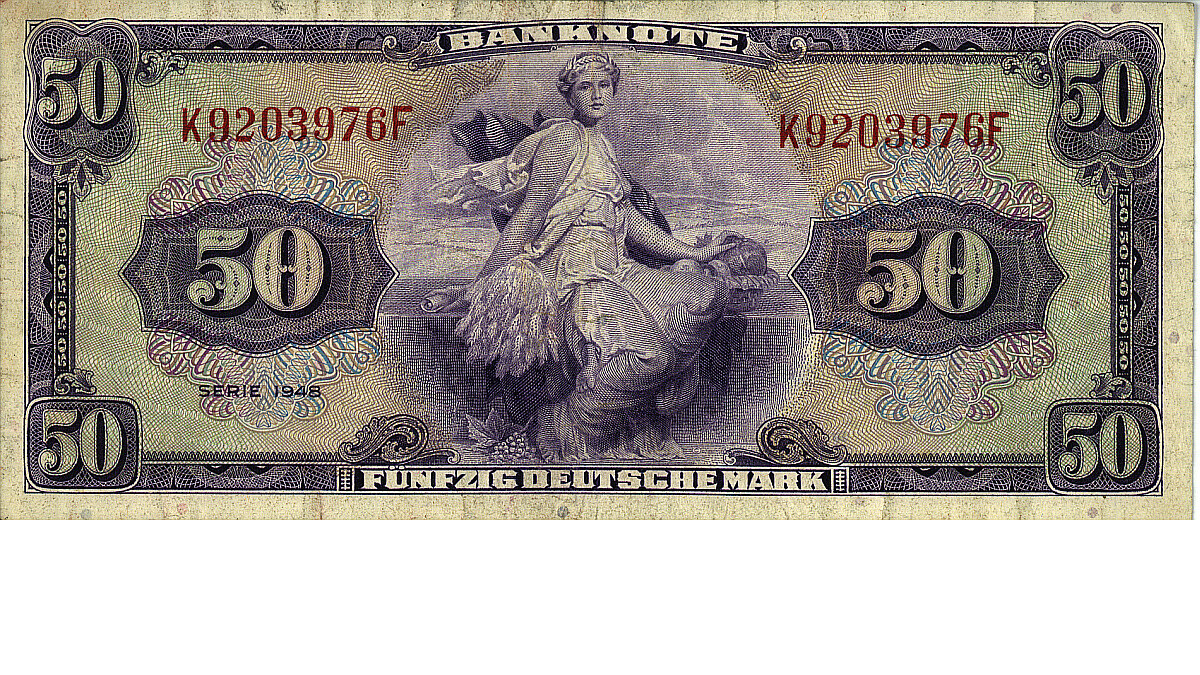
Legal Tender
Bank Notes and Coins Issued by a Sovereign State with a Declaration of the Value
This section of the collection is made up of money. Those means of payment are considered legal tender that no one can reject as a way to fulfil a monetary claim. In Germany, bank notes denominated in Euro are the only unlimited legal tender, while Euro coins are limited legal tender. The collection includes not only Euros, but also legal tender valid in the past, such as Deutsche Mark (DM), the Communist East German Mark and pfennig coins. There are also commemorative coins and foreign currency relating to German history. Cash in the form of bank notes and coins are used every day and thus reflect Germany’s economic development and in part its social impact.
Money Tokens
Emergency Means of Payment in Times of Crisis
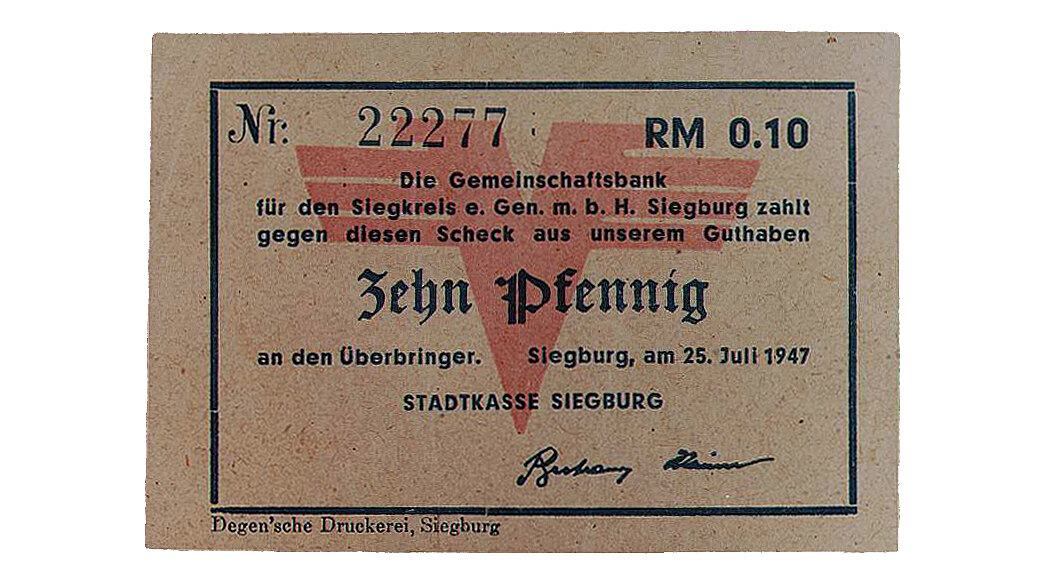
Money Tokens
Emergency Means of Payment in Times of Crisis
In times of crisis, money tokens act as substitutes in the absence of legal tender and are primarily issued by cities, districts, local authorities, public associations and private corporations. These unofficial means of payment tend to be coins or notes made of any number of different materials. Debentures and IOUs can also be used in this context. Token money perfectly reflects crises, the need for everyday goods and the deterioration of currencies.
Tokens
Vouchers and Food Stamps
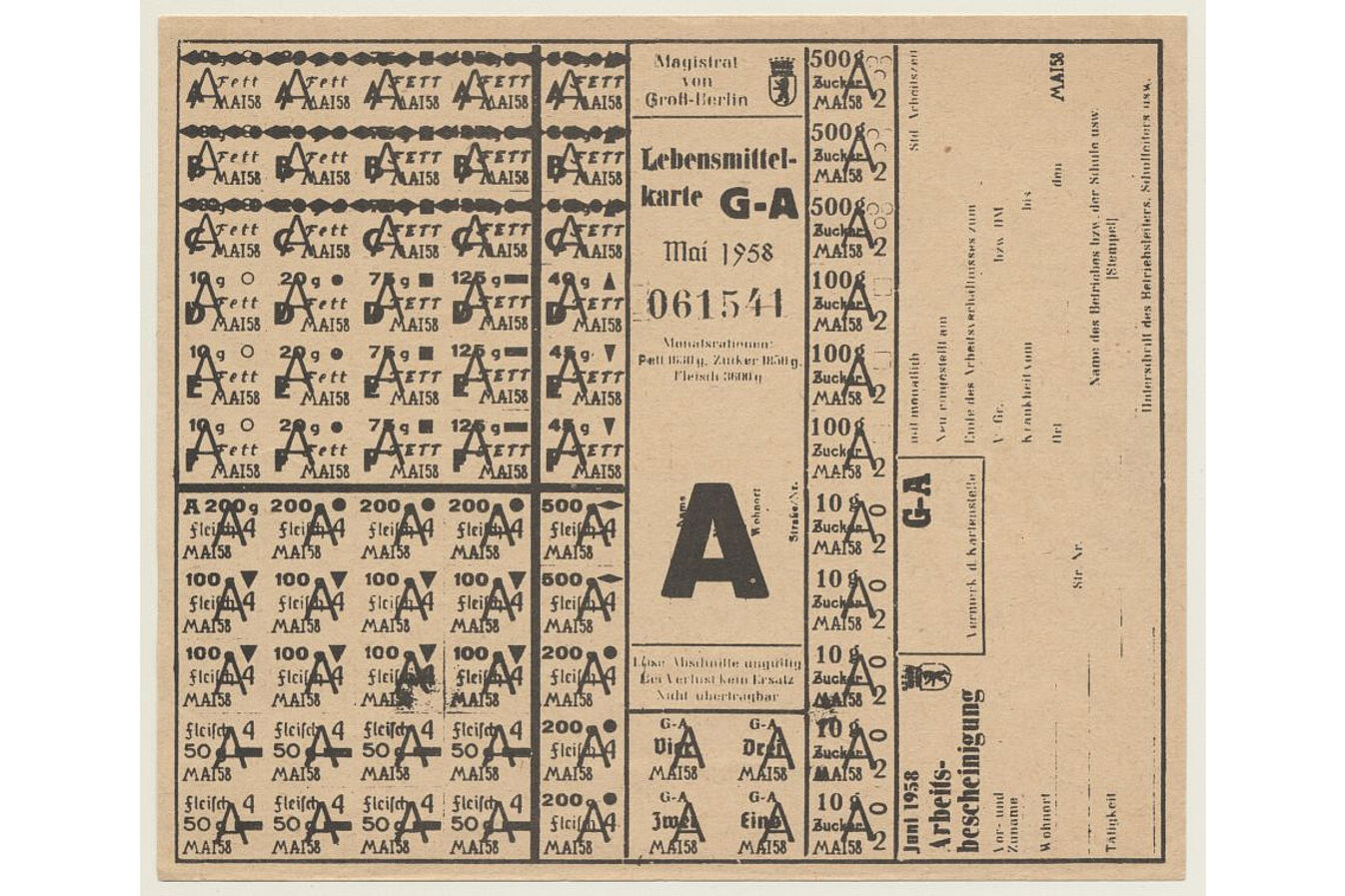
Tokens
Vouchers and Food Stamps
Tokens are private substitutes for cash made from base metals or a surrogate (card, plastic, etc.). The tokens may bear the value in the state currency or not have any denominated value. They are swapped for goods or services, but the recipient is not obliged by law to accept them.
Securities
Stocks and Bonds
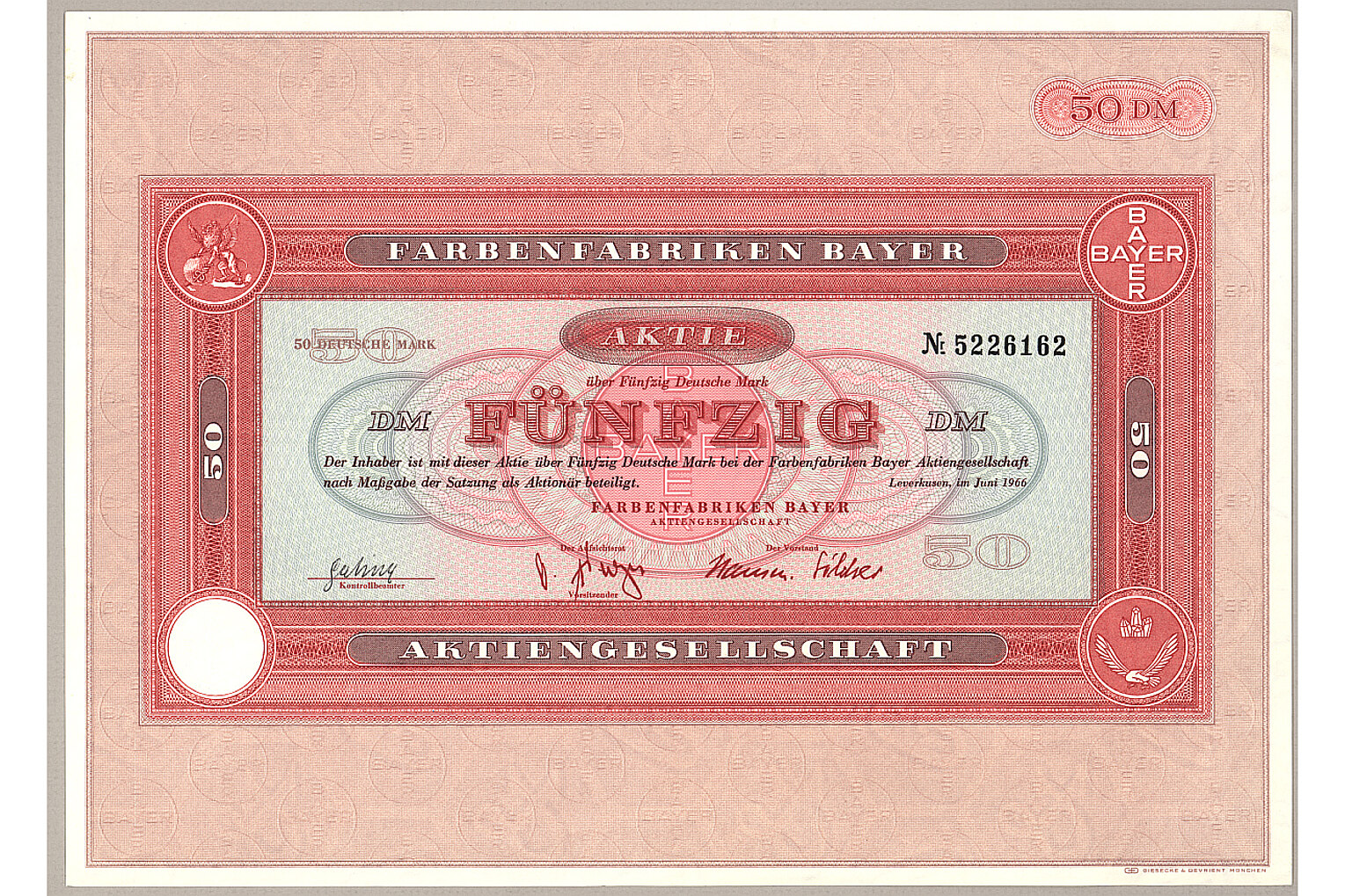
Securities
Stocks and Bonds
A security is the written title to the right to an asset, usually in the form of a title deed. Securities include, for example, stocks, bonds or shares in investment funds. Originally, the bearer had to physically own the deed in order to exercise the right to the asset. Today, formal issue of a deed is no longer always necessary. Securities are ideal for visualizing complex economic processes – such as the participation of small shareholders in a company in the form of so-called people’s shares, or corporate mergers brought about by share swaps.
Means of chashless payment
Cheques and Plastic Cards
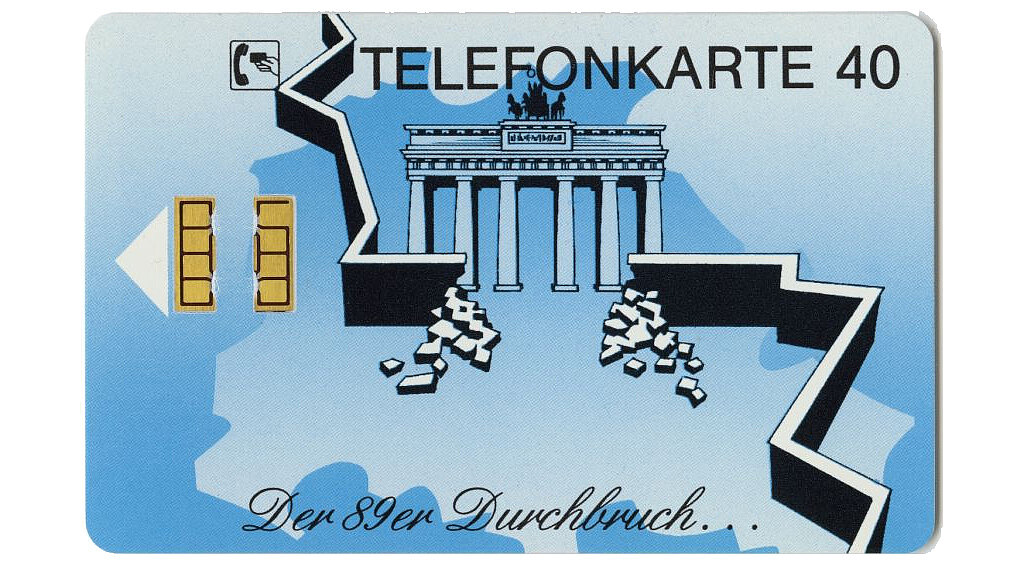
Means of chashless payment
Cheques and Plastic Cards
No money changes hands in a cashless payment, as the sums involved are simply booked out and in. The money does not exist physically. Cashless payment instruments include bank transfers and debit notes and increasingly money substitutes such as credit cards and debit cards. Specifically, the increase in such “plastic money” highlights how technological developments have massively changed long-standing everyday habits.
Fake Money
Toy Money and Advertising Money
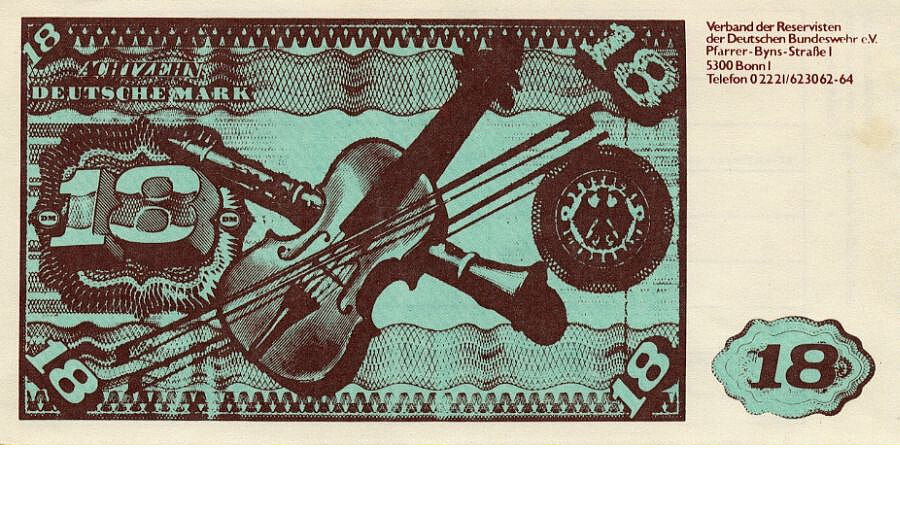
Fake Money
Toy Money and Advertising Money
The “Fake Money” collection includes copies of means of payment produced for legal uses, such as toy money or bank notes bearing advertising. Such fake money plays with the fact that it looks like real money without trying to be deceptively genuine. This is why it should be distinguished from forgeries of legal means of payment (notes and coins), manufactured for illegal use.
Items relating to payments
Money Box, Wallets, Credit Card Reader
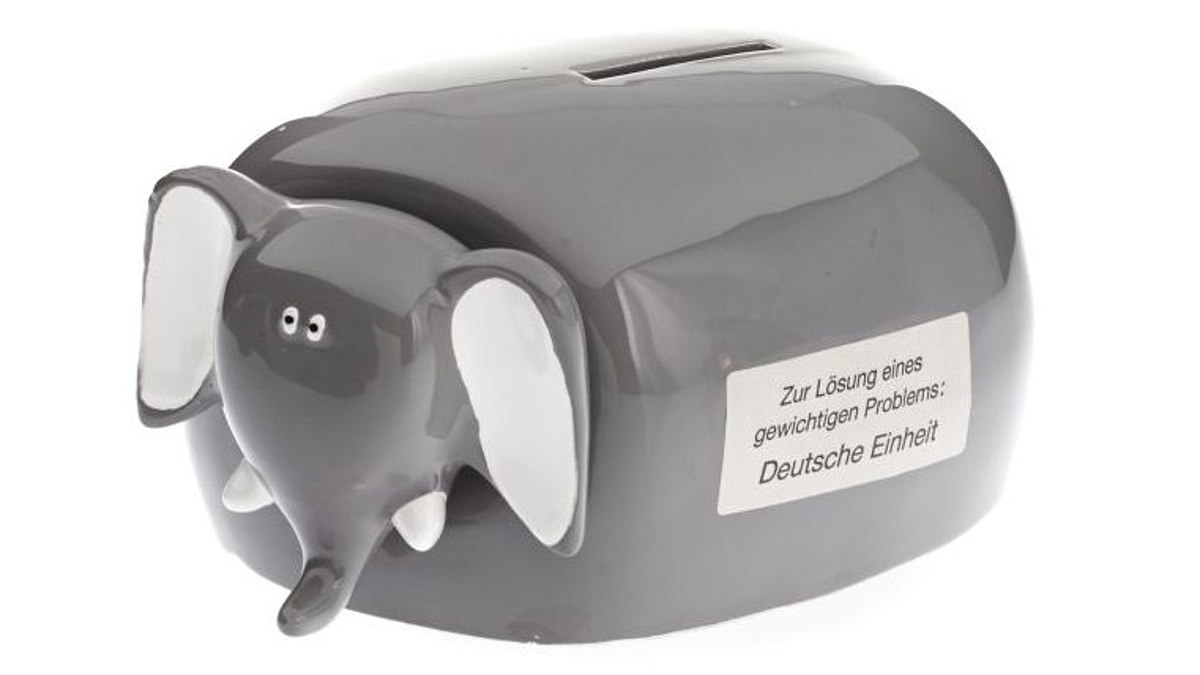
Items relating to payments
Money Box, Wallets, Credit Card Reader
The collection includes objects indirectly related to payment transactions or means of payment, such as piggy banks, coining dies and bank note sleeves.